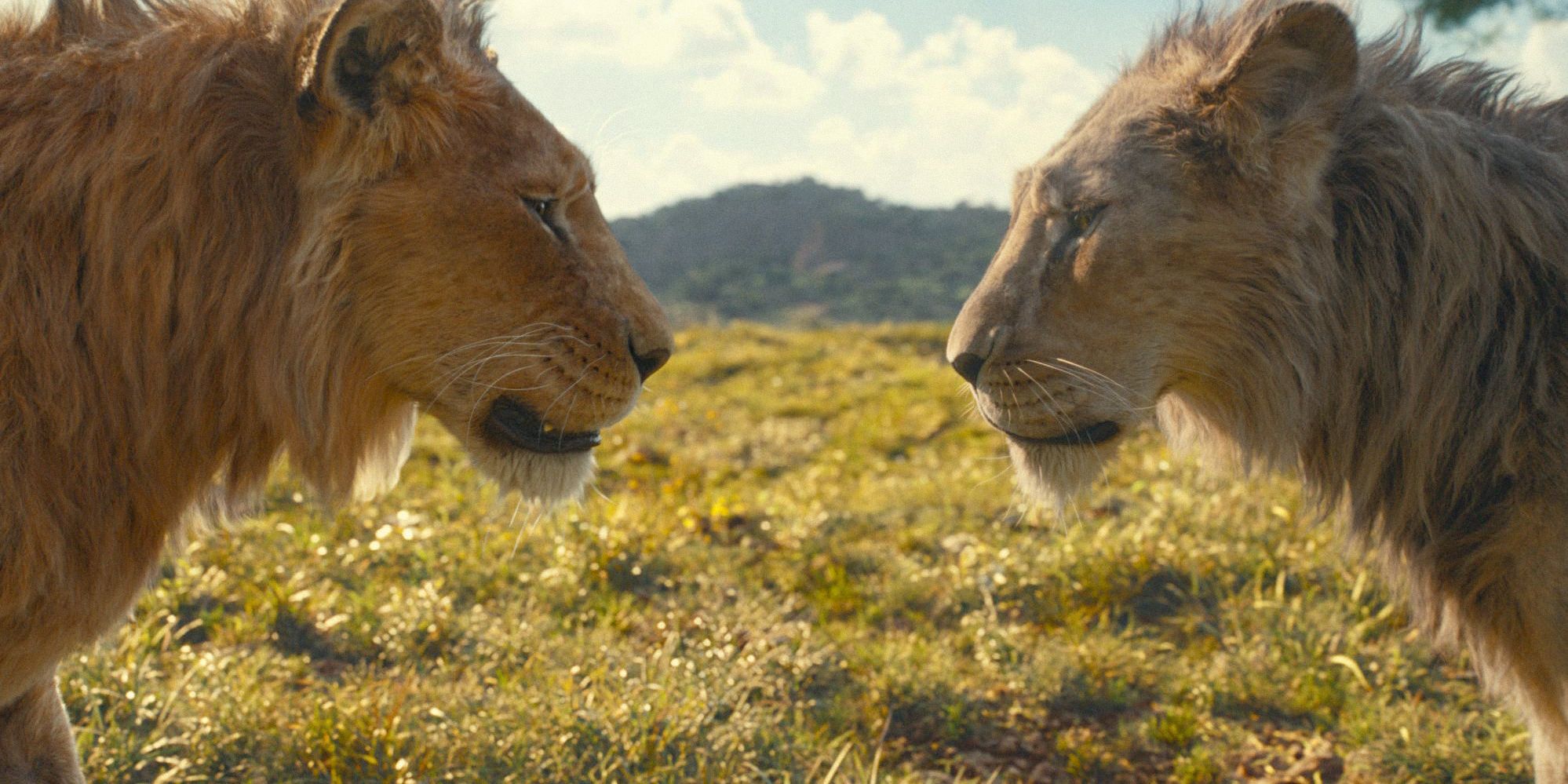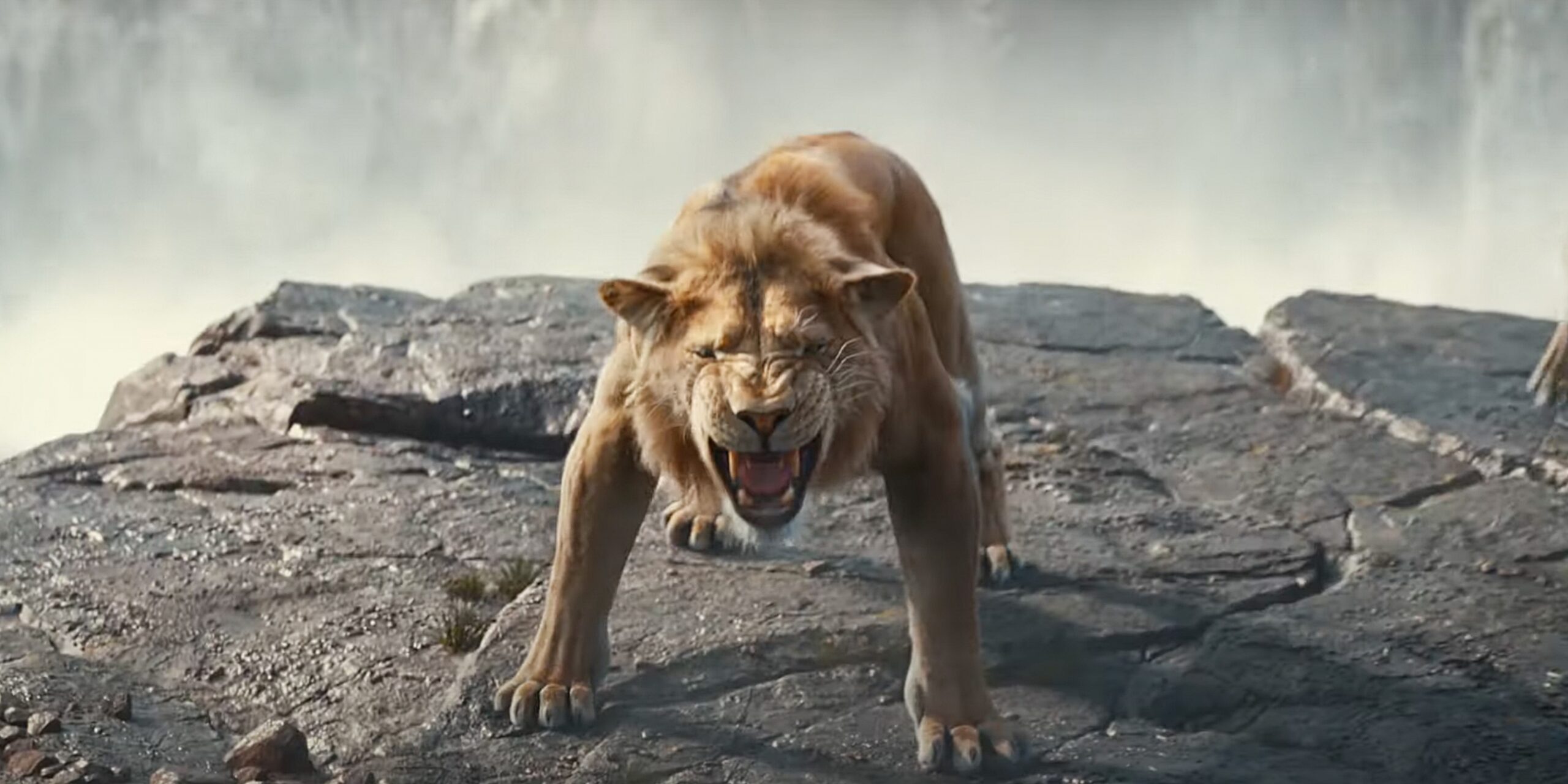Director: Barry Jenkins
Writers: Jeff Nathanson, Linda Woolverton, Irene Mecchi
Stars: Aaron Pierre, Kelvin Harrison Jr., Tiffany Boone
Synopsis: Mufasa, a cub lost and alone, meets a sympathetic lion named Taka, the heir to a royal bloodline. The chance meeting sets in motion an expansive journey of a group of misfits searching for their destiny.
Mufasa: The Lion King has arrived. While watching, I couldn’t help but notice the stark difference from the 2019 live-action remake of The Lion King, where the characters failed to emote a sense of pride—the pun very much intended. Despite the glorious special effects Jon Favreau brought to the table, the emotional expression was lacking, making it feel more akin to the stoic style of Homeward Bound.

We needed Mufasa to speak with regal virility, young Simba to project fear, and his older self to embody his father’s presence. Even Nala was required to look like she had fallen in love, her eyes brimming with emotion. Now, under the direction of Barry Jenkins (If Beale Street Could Talk), Mufasa: The Lion King corrects that critical misstep.
This prequel explores how Mufasa became the lion we revere; weaving joy, melancholy, and fear into a story that aptly captures life’s emotional spectrum across the Pride Lands. This nuanced approach makes the film more suitable for family viewing. However, it still falls short of delivering unbridled joy—not just the awe of a big-screen spectacle, but the exuberance a family affair demands.
This shortcoming is particularly evident during the flashback sequences, where the tone becomes noticeable compared to the rest of the story. The film’s framework picks up where the live-action The Lion King left off. Simba (Donald Glover) and Nala (Beyoncé) now have a beautiful daughter, Kiara (Ivy Blue Carter). On a stormy night, Kiara finds herself alone with Simba’s friends.
The lively warthog Pumbaa (Seth Rogen), the quick-tempered meerkat Timon (Billy Eichner), and the playfully wise baboon Rafiki (John Kani) try to comfort young Kiara by recounting a story about her great-grandfather, Mufasa (voiced as an adult by Aaron Pierre and as a child by Braelyn and Brielle Rankins). At the same time, one might expect a story centered on Simba; the narrative ties in by revealing that Mufasa, too, was once afraid of the rumble of thunder.

Of course, the story cannot unfold without Scar—though that was not his birth name. He was initially Taka (Kelvin Harrison Jr.), the young lion prince of Eshe (Thandie Newton), and Obasi (Lennie James). Taka discovers Mufasa washed ashore after a flood, separated from his parents while searching for lands rich with foliage and water. Taka brings Mufasa home and persuades his parents, who uphold a strict no-outsiders policy, to spare the young lion’s life.
Mufasa: The Lion King was written by Jeff Nathanson, whose career spans a wide and varied range, including the Rush Hour films and an Academy Award nomination for Catch Me If You Can. Nathanson’s script blends familiar elements from the original The Lion King with a fresh take often seen in movies that explore the origins of classic, beloved characters. The film offers grand, high-stakes adventures that will surely captivate the audience.
For instance, the boys dash across a river, hopping on hippos like lily pads, and Taka heroically saves his newfound friend Mufasa from snippy crocodiles after the flood. A particularly gripping moment features the attempt to outrun and dodge certain death during an elephant stampede. These CGI-laden special effects—this is live-action, not animation—are jaw-droppingly good. They add real stakes to the story, creating suspense and keeping viewers on the edge of their seats.
However, the distinctly uneven tone across different layers of the film can take the audience out of the experience—so much so that it raises questions about its suitability as a family film for children. These scenes can be very frenetic, where others are stagnant. This is particularly evident when Krios, leader of a group of pale white lions, seizes the lands promised to Taka (played with viciously entertaining flair by Mads Mikkelsen). Admittedly, most of the violence in the film occurs off-screen.
While the film may not be entirely original, Barry Jenkins brings such deep respect for the source material that you can’t help but walk away impressed by the movie as a whole. The 2019 live-action remake suffered because it attempted to recreate a classic without allowing the characters to emote. In contrast, Mufasa: The Lion King offers a fresh narrative, exploring themes from the original (such as the trauma of abandonment) while introducing new ones (like the trauma of forced migration). It is visually stunning and, at times, breathtaking to behold.

However, it’s hard to ignore that, despite all the talent involved, the movie takes no real risks with its story. It often feels contrived, driven by its nature as a straightforward money grab. The PG rating undoubtedly limited artistic freedom. Even Lin-Manuel Miranda’s music doesn’t have the same panache as the originals, and at times, seems contrived to stay in the box instead of searching for something inspiration outside of it.
That said, I wouldn’t accuse Jenkins of selling out; instead, he handles the source material with such care that it works as solid entertainment. While it requires some patience to sit through, the film ultimately rewards the viewer’s effort. Mufasa: The Lion King may not live up to the original, but Jenkins’ talent and Miranda’s music allow fans of the original to enjoy the experience over the original live-action remake while allowing a new generation to embrace the new path.
You can watch Mufasa: The Lion King only in theaters





